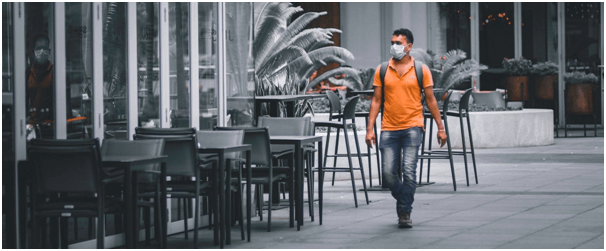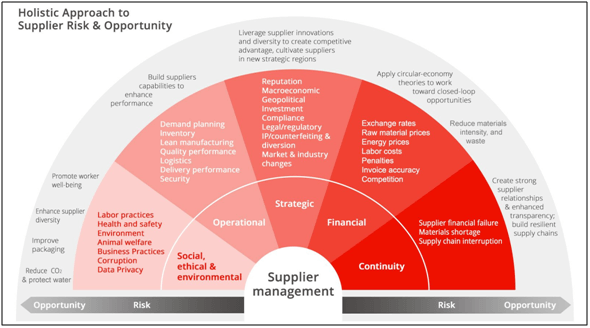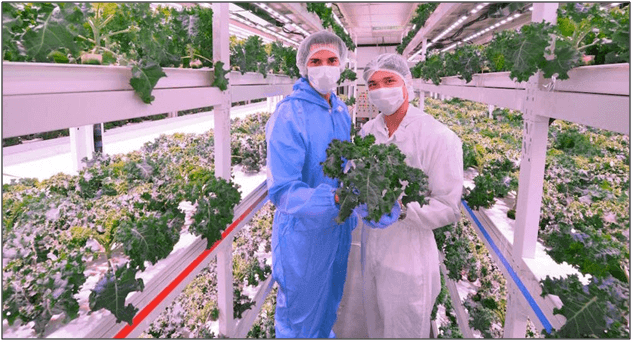The hotel industry has specific needs which are different from other industries. There are many considerations and factors that stand out as priorities in order to achieve the consistency, flexibility and quality that guests expect when they are staying in your hotel.In hotel procurement, several responsibilities such as sourcing for materials, negotiating for contracts, payment terms and end of life management are fundamental to the job.
The hotel procurement function normally reports to the financial controller and is a part of the finance department. The most part goes unrecognised is that procurement costs result in cash flows for the hotel. In fact, if the function of acquisition is not managed adequately, the hotel ends up being susceptible to cash flows. This is done by negotiating payment terms with suppliers, and to build an effective supplier relationship.

Table of Contents
Impact of Covid-19 on the Global Hospitality Industry
Coronavirus, carrying the status of a pandemic globally, has led to a global crisis, affecting the hospitality industry potentially more than those of 9/11, SARS and the financial crisis. The hospitality industry has never experienced such a crisis, putting humans in the centre of the global situation. Covid-19 generates deep anxiety, creates panic and uneasiness, confusion and impacts people both mentally and physically, an emotional way that the people of this generation has never felt.

The impacts of the crisis have reached every industry on a global scale, with airline, tourism and hospitality taking a heavy hit. According to data provided by OAG Aviation Worldwide, the travel ban on international flights have caused the global airline industry losses amounting to $880 billion. The travel and tourism industry is also under immense pressure with many hotels to cease operations partially or entirely, including its restaurants, cafes and bars. Hotel owners and operators are suffering tremendous revenue losses. As the phrase “social distancing” becomes a new normal, many people are staying home more often, while some attempt to continue typical daily activities through restrictions. Some cities implemented full lockdowns, and this created an uncertain business climate for bars, cafes and restaurants.
The Implications to Hotel Procurement
Covid-19 has severely disrupted supply chains globally. Procurement leaders needs to maintain business operations, fulfil urgent requests, and soothe supplier challenges against the significant disruption to their businesses, people and communities. Procurement leaders have also focused on their initial efforts on managing the supply disruptions from suppliers.
Procurement leaders also have to concentrate on their initial efforts on managing upstream supply disruptions from tier 1 and tier 2 suppliers, rebalance their short-term sourcing decisions and turn their focus to medium-term to secure the supply base and building future-proof resilience. This approach will help manage the immediate emergency of Covid-19 and also build stronger and more resilient businesses as economies return to normal.This pandemic has also exposed the vulnerabilities of companies and industries, especially those who depend on China to fulfil their need for raw materials and finished products. China’s dominant role of the world’s factory means that any major disruption puts the supply chain on a global scale at risk.

Emergence of a New Procurement Model
The focus on optimising supply chain to minimise cost, reduce inventories and drive up asset utilization. New supply chain technologies are also improving on visibility across end-to-end supply chain dramatically, and to support businesses ability to resist shocks. Transforming traditional linear supply chain model into digital supply networks, where functional depositories are broken down and businesses become connected to their complete supply network to enable visibility, collaboration and optimization.

Procurement leaders will also have to focus more on strategic and sustainable procurement, while managing cost altogether. Strategic procurement requires input from all departments and functional areas, aligned with business strategy, using the data from the strategic procurement process to develop and implement a strategic procurement plan. Sustainable procurement incorporates an initial stage to determine the result of a desired outcome which is both environmentally and socially favourable.
Managing Procurement Risks from Supply Disruptions
Procurement leaders must be prepared to source for alternative businesses providing goods and services to the hotel. Suppliers will also be concerned with their finances and may demand pre-payment or fast settlement in order to ensure business continuity.Hotel procurement will play an important role in supporting departments in the hotels. The greatest global pandemic in over a century has created disorder, threatened lives and livelihood and brought much of industry to a standstill. While the pandemic has created uncertainty, it has also created new markets and opportunities for the post covid-19 era.

To avoid the risk of supply chain disruptions, procurement leaders have shifted their focus to local sourcing, where sustainable local farming are in trend. Buying vegetables, eggs, seafood will be the new normal. This will also help in the support of local farmers. Hotels will also grow their own vegetables using vertical farming technology within their hotel premises. These vegetables are grown without the use of artificial fertilizers or pesticides. Procurement leaders are working with vertical farms to achieve and promote self-sustainability and to elevate and market their image and increase consumer’s confidence.
Guests will also expect to see more robotic process automations at check-in counters, room corridors and also for room services to reduce physical interaction between humans. Hotel staffs will also be wearing protective equipment such as surgical face mask and face shield.There will also be sneeze guards in the lobby, such as Q-poles with sneeze guards as well as reception counters. Restaurants and cafes will also be placing sneeze guards on counters and buffet tables to protect employees and guests from the spread of Covid-19, influenza and other communicable diseases transmitted by talking, coughing or sneezing.

Conclusion
Hotel procurement has had to evolve swiftly in the short time since Covid-19 began. They are forced to become more connected with its suppliers, external and internal customers. A significant cultural shift in communicating and form of working is also challenging. Procurement leaders are to mobilize support structures for employees, while enabling suppliers and extended networks with the same access to resources to safeguard ecosystem resilience.
Procurement leaders will also need to work closely with suppliers and departments on new business models. The pandemic has strained even the very experienced leaders. They have never been tasked to play such a preeminent role in safeguarding their company’s financial growth while protecting a critically disrupted supply base. As they operate the present supply chain challenges and plot a course for restructuring their businesses for the post-pandemic world, procurement leaders should focus on three things in mind. They should plan for a decline lasting considerable duration, as the risk of infection might return locally, regionally or globally. Procurement leaders should also adopt a mind-set of continuous innovation to better protect the people and the supply chain. Procurement leaders should lead with purpose, responsibility and confidence and help businesses and people become stronger.
References:
Accenture. (2020) “Covid-19: Managing the Impact on Procurement for Resilience and Growth”. Retrieved from https://www.accenture.com/us-en/insights/consulting/coronavirus-procurement-recovery-growth, accessed 14/04/2020.
Deloitte. (2020). “Covid-19: Managing Supply Chain Risk and Disruptions”. Retrieved from https://www2.deloitte.com/global/en/pages/risk/articles/covid-19-managing-supply-chain-risk-and-disruption.html,accessed 22/06/2020.
Drees & Sommer. (2020) “Preparing for Hospitality 2.0 in the Post Covid-19 Era”. Retrieved from https://www.hospitalitynet.org/news/4098465.html,accessed 22/06/2020.
Lena Combs, HLB USA. (2020). “Covid-19 Implications on the Hospitality Industry”. Retrieved from https://www.hlb.global/covid-19-implications-on-the-hospitality-industry/, accessed 22/06/2020.
Paisley Ang Siew Boay, DPSM. (2019) “Key Considerations for Sustainable Procurement”. Retrieved from https://publication.sipmm.edu.sg/key-considerations-sustainable-procurement-2/, accessed 22/06/2020.
Wang Min, DPSM. (2017) “Importance of Effective Procurement Practices for Successful Hotel Operations”. Retrieved from https://publication.sipmm.edu.sg/importance-of-effective-procurement-practices-for-successful-hotel-operations, accessed 22/06/2020.
Yuki Hu, Eva Liu & George Yu. (2020). “Covid-19 and the Global Hotel Industry: A Roadmap to Recovery, Part 2”. Retrieved from https://www.phocuswire.com/coronavirus-global-hotel-strategy-part-2, accessed 22/06/2020.

